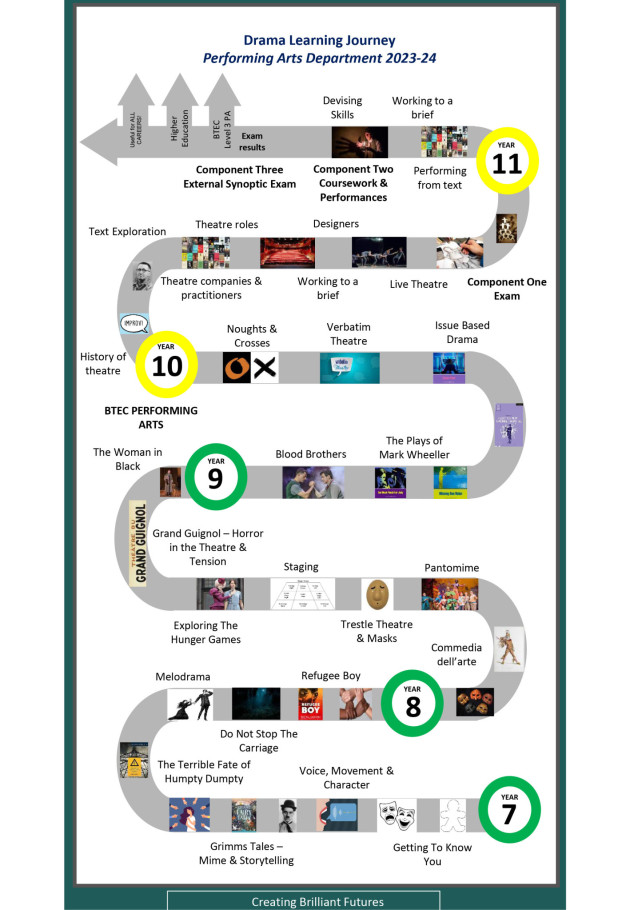Drama

Drama
Statement of Intent
Drama at Campion offers the students the opportunity to study a range of different types of theatre which are fundamental to understanding of how theatre has developed throughout the different eras. Their knowledge of drama is developed through the teaching of vital theatrical skills which allows them to devise their own performances and explore a range of traditional and modern plays. Students throughout their time at Campion are given opportunities to experience a wide range of live theatre by either being part of a production, watching a play at the theatre, being involved in a drama practical workshop or witnessing a production by a visiting theatre company.
Drama at Campion believes in developing the person as a whole and is often used to explore modern issues in society and link to the current topical news which will have an impact on student’s futures. The department believe in offering students extra-curricular opportunities where they can explore the different elements to the subject and follow different passions, such as the school production, drama club where they can explore acting and also the technical and design aspects to the subject. Underpinning all the above is the aim to promote key life skills such as team work, time management, confidence, empathy, public speaking and many more which enable students to become well rounded young adults who are ready for life outside education.
Curriculum map
Head of Performing Arts



